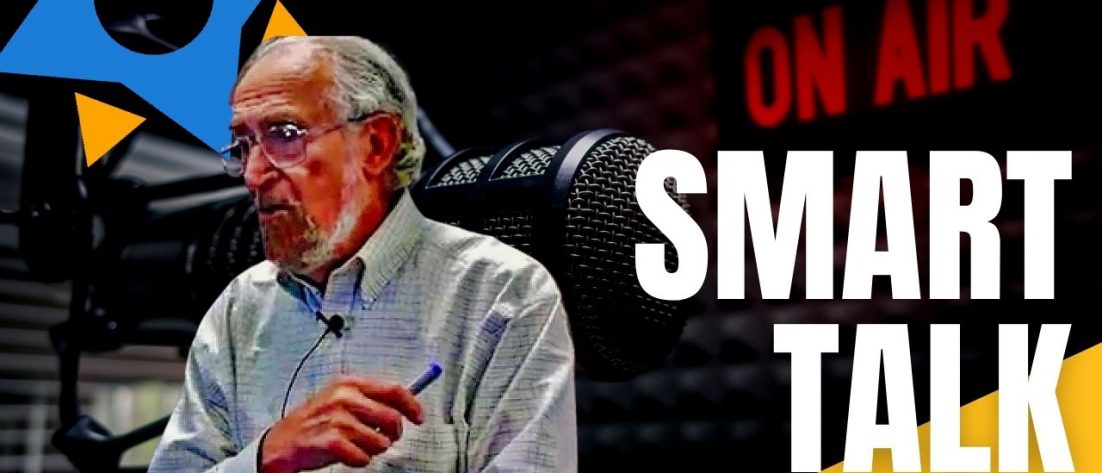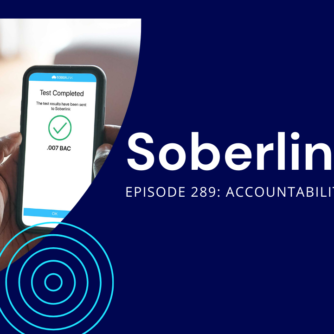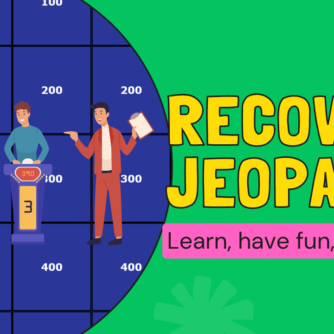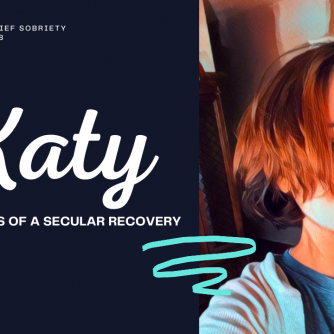Welcome to SMART Talk! In this episode Arthur Shenker and I spoke with Joe Gerstein, founding President and a current Board Member for SMART Recovery. Joe has facilitated SMART Recovery meetings since its inception and has developed many of the tools in the SMART toolbox. He has also been instrumental in starting SMART meetings in several countries around the world. Joe was kind enough to spend some time with us to go over some of the basics of SMART Recovery, its history as well as his history with the organization, and the story behind the tool he developed known as the Hierarchy of Values.
Feedback from the previous episode
Before we got into our conversation, we reviewed some feedback we received from the previous episode. The feedback was overwhelmingly positive. Listeners who commented expressed an interest in learning more about the SMART tools, especially the Hierarchy of Values and the ABC Tool. One criticism we received was from a listener who felt that we were unfairly comparing SMART with Alcoholics Anonymous.
The basics of SMART
Joe explained that SMART is an evidence-based program, and the name “SMART” is an acronym for Self-Management Addiction Recovery Training or Self-Management And Recovery Training. The program has two precepts; the tools of which there are fourteen, and mutual support from peers. There is also a program to help people who want to support a loved one who is struggling with addiction that’s known as SMART Family and Friends.
Over the last five years, SMART has been able to make the claim that it is evidence-based because there have been specific studies on SMART Recovery that demonstrate its efficacy. Today SMART is a well-established mutual aid group, a non-profit organization with seventeen employees. All SMART meetings are free, supported by voluntary contributions from the people who attend. It is also making inroads into treatment centers. In fact, of the seven top-rated mental health hospitals rated by US News & World Report, five host SMART meetings, and one has their patients participate in SMART meetings while in treatment. Joe explained that because SMART is evidence-based and relies on tools from Cognitive Behavioral Therapy, it is important that SMART meeting facilitators be trained. As of today, SMART has trained some 12,000 facilitators. Two-thirds of those who take the training are professionals and the other third are peers. SMART also has a handbook that is now in its third edition and published in thirteen different languages.
The history of Joe’s Involvement in SMART
SMART began as Rational Recovery, which was started by Jack and Lois Trimpey in 1985. Jack was a social worker who wasn’t being helped by the Twelve Steps, so he went to the REBT Institute in New York run by Albert Ellis, the doctor who developed Rational Emotive Behavioral Therapy (REBT). The REBT tools helped Jack recover from problematic drinking, so he decided to start a program based on REBT that he called “Rational Recovery”. Joe Gerstein learned about Rational Recovery and got involved with the new organization because as a doctor, he found that many of his patients were turned off by the Twelve Steps to the point they simply wouldn’t attend Twelve-Step Meetings. Soon after Joe started Rational Recovery meetings, he realized this program would change the world of recovery. Rational Recovery later became SMART, and Joe has been part of the organization ever since.
SMART Adapts and Evolves
SMART has always been a partnership between professionals and laypeople. The first board had nine professionals and two laypeople, and today the board has fifteen members with only three of them being professionals. Joe believes it is important to have this partnership because SMART needs to know the latest science, so it can change as new information becomes available. He thinks the newest developments in science now are the efficacy of medications used to treat addiction and the proven benefits of meditation. Joe made a point to be clear that SMART meetings aren’t therapy sessions, and no advice is given. Instead, the technique of motivational interviewing is used to help people make their own decisions. This is fundamental to SMART Recovery, and Joe says it is “part of the ethos of SMART.” Along with motivational interviewing, the meeting facilitator must also practice empathetic and active listening because language is sometimes imprecise and it’s important to ensure that people are understood.
Joe Develops the Hierarchy of Values
In the early days when Joe was facilitating SMART meetings, there was a member of his group, a man who didn’t seem to have the motivation to change and quit drinking. Over a period of weeks, Joe noticed the group was beginning to get uncomfortable with the man’s lack of commitment, so he felt he needed to intervene. Aware of Abraham Maslow’s Hierarchy of Needs, Joe had the idea that instead of listing one’s needs, why not think about values. With this in mind, Joe got out a whiteboard and asked the man to list the people and things in his life that he values the most. The man listed his family, his health, and his trips to Italy. No place on the list was alcohol. When asked about this, the man said he didn’t believe that drinking was a value. Joe let that rest and gave the man time to think about it.
The following week, the man came to the meeting and announced that he was ready to quit drinking. He said that as he thought about his values, he realized that he had canceled his trip to Italy because he didn’t want to go if he couldn’t drink. “What good is a trip to Italy, if I can’t enjoy a glass of wine with dinner?” He told the group he realized that his drinking was in conflict with his other values, and was taking precedence over what he thought he really valued in life. Thus, was born the Hierarchy of Values tool used in SMART meetings today.
Links
- SMART Recovery Website: https://www.smartrecovery.org/
- SMART Recovery Toolbox: https://www.smartrecovery.org/smart-recovery-toolbox/
- Hierarchy of Values: https://www.smartrecovery.org/hierarchy-of-values/
- SMART Handbook: https://amzn.to/3sk3J04






